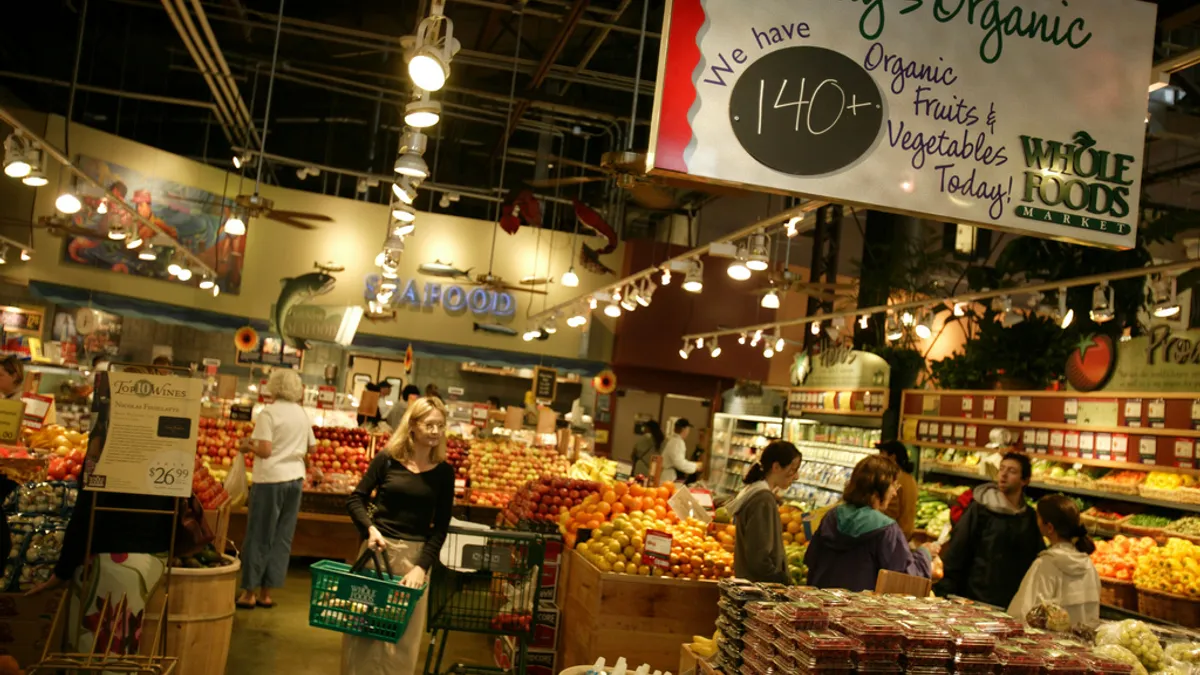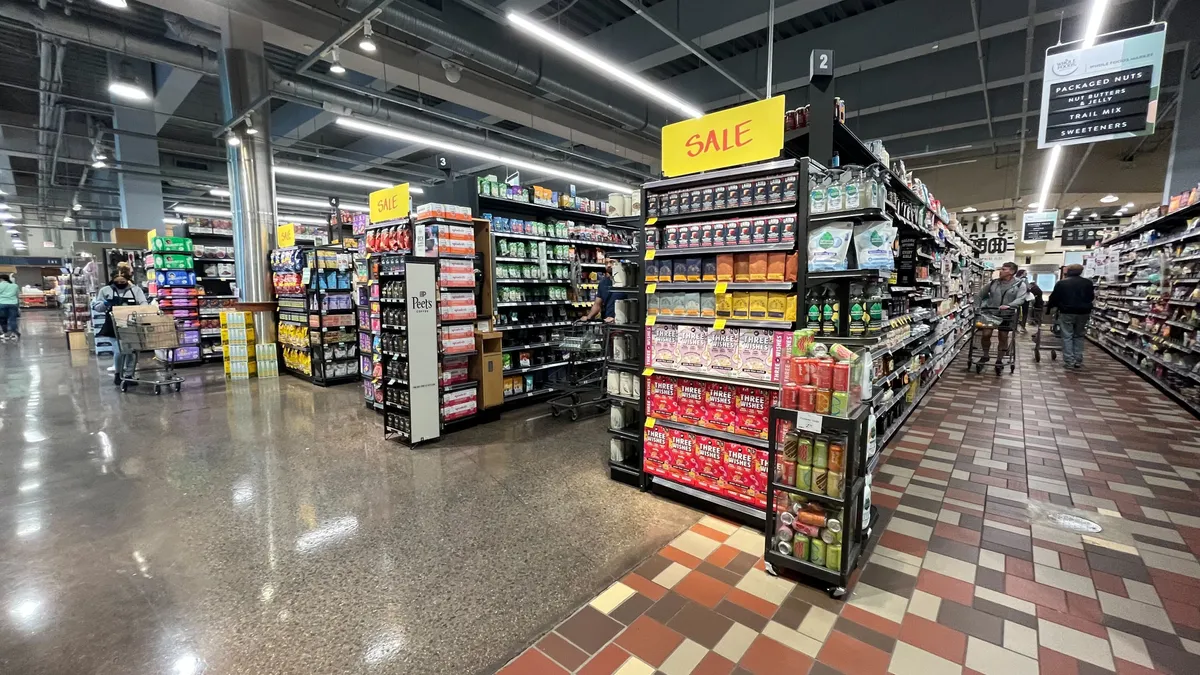Dive Brief:
- Retail analysts see no end to the sales slowdown at natural and organic retailers like Whole Foods, Sprouts Farmers Market and Natural Grocers, reported Supermarket News.
- Numerous factors are at play, including price deflation and stiff competition from conventional competitors.
- According to a new survey by Wolfe Research, the number of store managers reporting improved spending fell to 45% from 53% in mid December.
Dive Insight:
Sales of organic and natural foods have never been better. According to a report from Packaged Facts, the industry reached $69 billion in total sales last year — an 11% increase over 2015, and a 32% gain over the past five years.
Unfortunately for retailers like Whole Foods, these numbers aren’t translating into higher sales. That’s because they’re not the only player in town anymore. Competitors like Costco, Albertsons, Aldi and others are also selling organic produce, cage-free eggs, locally sourced meats and other all-natural products, all priced competitively, and many available through stores’ own private-label lines.
Costco now sells more organic produce than Whole Foods, while Kroger sells more than $10 billion worth of natural and organic foods.
Credit to the big guys for stepping up their game, but natural retailers have also been really slow to adapt to the changing landscape. Whole Foods, for one, has lagged on promotions. Only last year did the company begin offering digital coupons and a loyalty card program. Other players like Sprouts and Natural Grocers by Vitamin Cottage, meanwhile, have struggled to stand out from conventional supermarkets.
Natural and organic retailers need to differentiate themselves in the marketplace. That’s easier said than done, but it seems to start with slowing new store growth and reevaluating core competencies. What items do these stores have that others don’t? What are their values? What can they, as natural and organic specialists, do that traditional supermarkets can’t?
Further private label investment is one avenue worth exploring. And stores could always step up their sourcing of local and sustainable products, which carry a higher price tag in line with their customers' higher incomes. But the best weapon may be marketing. Whole Foods, for one, has long proclaimed itself "America's Healthiest Grocery Store," and executives say that's proved to be the company's best differentiating point — so much so that Whole Foods recently trademarked the phrase.










